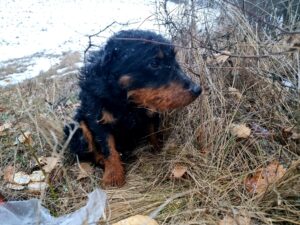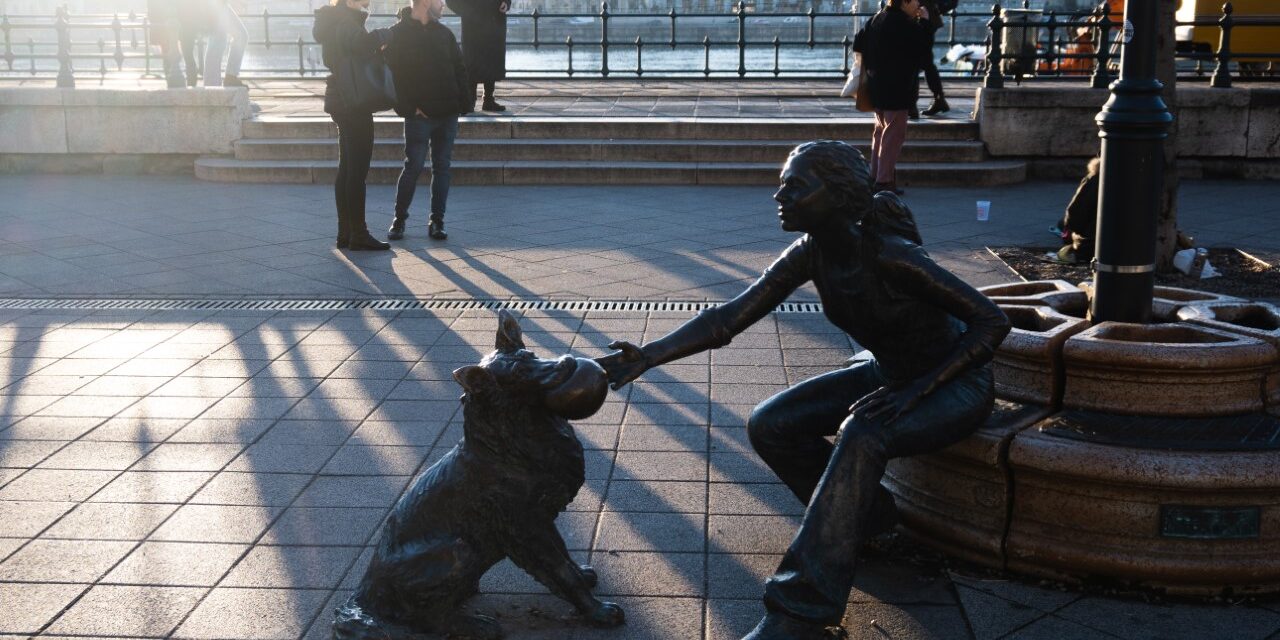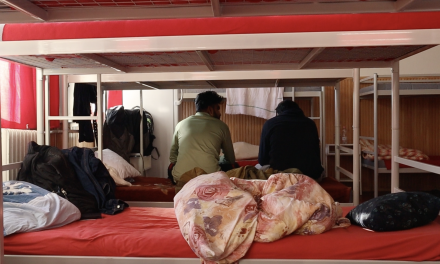In a country where most households own at least one pet, Hungary has been trying to fight animal abuse and dogfights for decades. There are many breeders that raise cats and dogs in dreadful conditions and large networks of seemingly elusive dogfighters. Now, the Hungarian government is finally taking big measures to end this. In December 2021, a new Animal Protection Law was passed. Endre Kodolányi of animal rescue organization Speciális Állatmentó Egység helped working on this law.
Endre Kodolányi sees how big of a problem animal abuse is in Hungary. In his work, he rescues abused and neglected pets and takes them to safe shelters. He tells about an ‘operation’ he had last week, where multiple cases of abuse were reported. “There is a small village on the countryside, were there are over three- to four hundred dogs flooding the streets. They need rescuing but there is simply no capacity. The people there are very poor and they keep their dogs to protect their property, but the conditions are really bad.” Endre says. “Two days ago, we went there and found an address, where three dogs stayed. Two of them were on the verge of dying, one was already dead. They were starved; people just don’t care.”

Endre Kodolányi on a rescue mission. Picture: Speciális Állatmentő Egység

Speciális Állatmentő Egység on a mission to rescue animals. Picture: Speciális Állatmentő Egység
A new attempt on fighting illegal breeders and dogfights
The new law consists out of multiple parts and many changes are being made to the already existing law. The main focus of the new law seems to lay on the tackling of breeders that own too many animals and mistreat them. The new change in this law will ensure that illegal breeders will now not be allowed to have any more than ten animals to take care of and that these will be treated fairly. Another consequence for these breeders is that they are facing way more jail time than before. In 2020, there were many cases of reported animal abuse, yet only four of the abusers were sentenced to go to prison. Now, the aim is to make a change in this and let every abusive breeder with over ten animals expect legal action.
A problem that is more difficult to tackle in Hungary are dogfights. There are no exact numbers on how often these take place, but Kodolányi has often seen places where these fights have been held. “It happens a lot. One time, we could spot a dogfight-terrain by using satellites. On these images, we could see over forty strange circles on the ground. Later we discovered that these where the circles the dogs where walking while they were chained to a pole. The circles were ingrained into the ground. All these dogs were kept and trained for the fights.” To fight some of these crimes, the new law says that all people involved with the fights, also the people who only watched, can now be sentenced to prison for up to five years.
Corrupt authorities
Endre feels like animal abuse and illegal breeding are partly a cultural thing. “In Hungary, there are countless illegal breeders. There are places, where half of the village is living off this business.” He tells. However, the breeding and trafficking of these animals is not solely something the residents in small low income villages do. “During operations in these towns we find big amounts of cash, notes on illegal trafficking and even notes to doctors who cut out the “voice” of dogs. We find things that relate to corrupt authorities. We often come to the conclusion that it can be called organized crime, since so many parties are involved. This is why it’s such a hard problem to grasp. Even the authorities are in on it.”

There are many stray and abused dogs on the streets of Hungary. Picture: Speciális Állatmentő Egység
A better future
Since the problem of abuse seems so interlaced in Hungarian society, Endre doesn’t think the new law will solve all of it. There are remaining issues that aren’t being handled yet, which is the case with the governmental shelters. “These shelters are anything but animal friendly. It’s just business. They catch the animals, and within ten days they kill them. Sometimes by cutting their throats. They don’t take cute pictures of the animals to try and find a new owner and they don’t have money to keep them either.” It might sound as if the new law will maybe better the situation, but could never solve it. Yet Kodolányi has hope, and that is all because of the next generation. “Every now and then I get invited to schools to educate children about the animals. It’s so good to see that the new generation is so different from earlier generations. They are so open and understand that animals are not things, they have souls and are actually living. They are way more sensible.”
In January 2022 the new law will go into effect. Endre Kodolányi already knows his plans for the start of the new year. “We already mapped out some illegal breeders that we will visit once the law will be in effect. We can’t wait to test the law, and send them to jail.”




